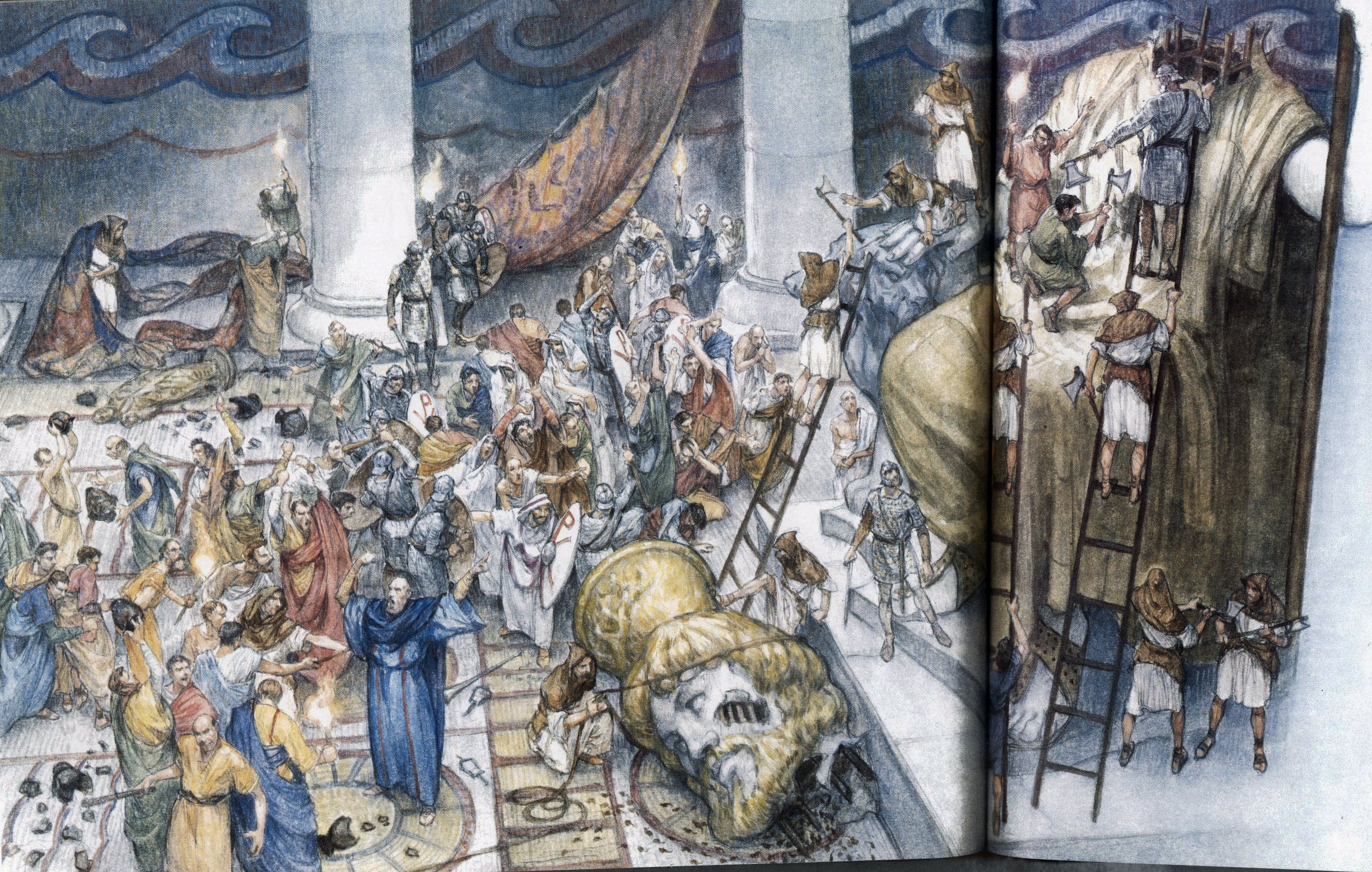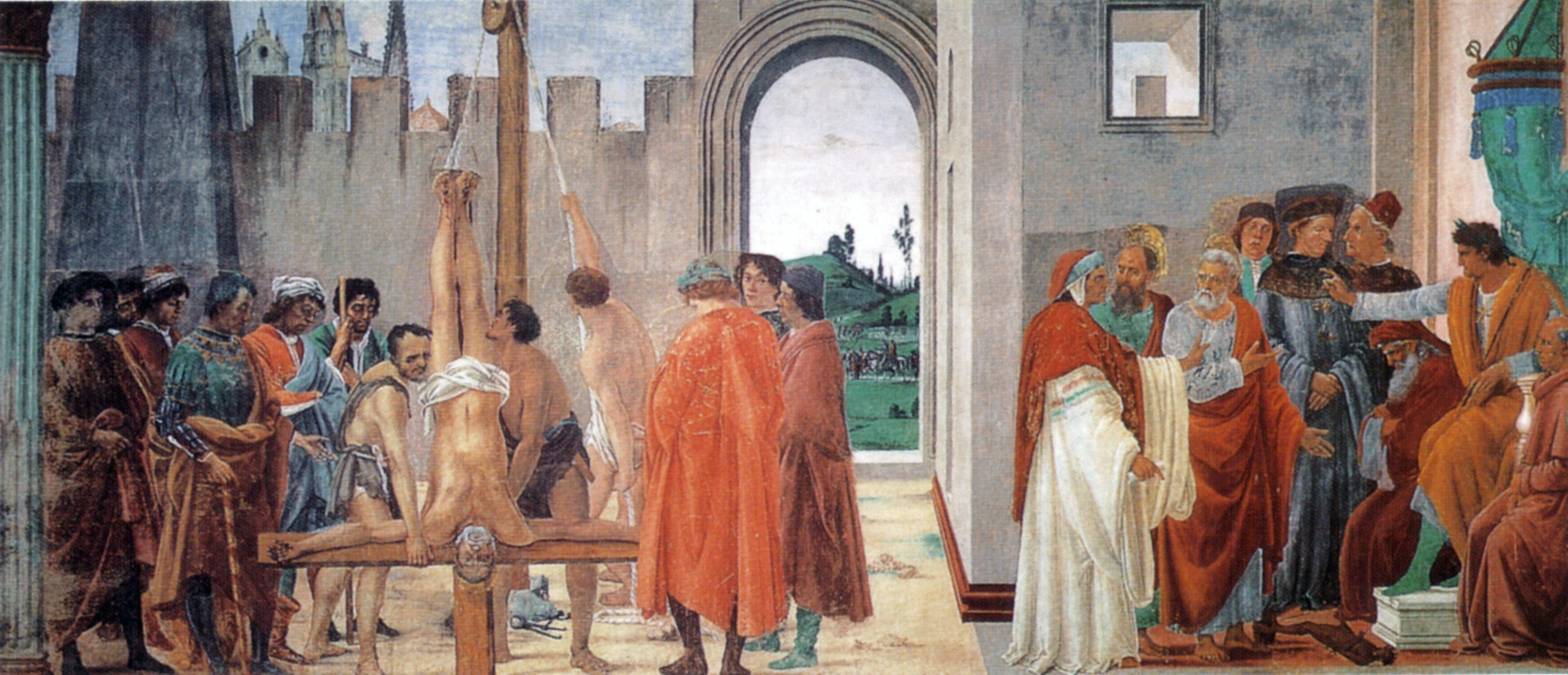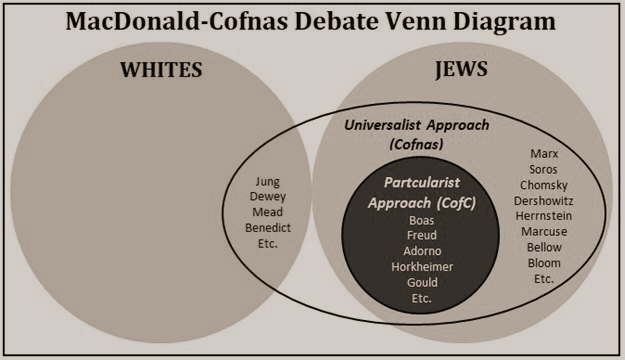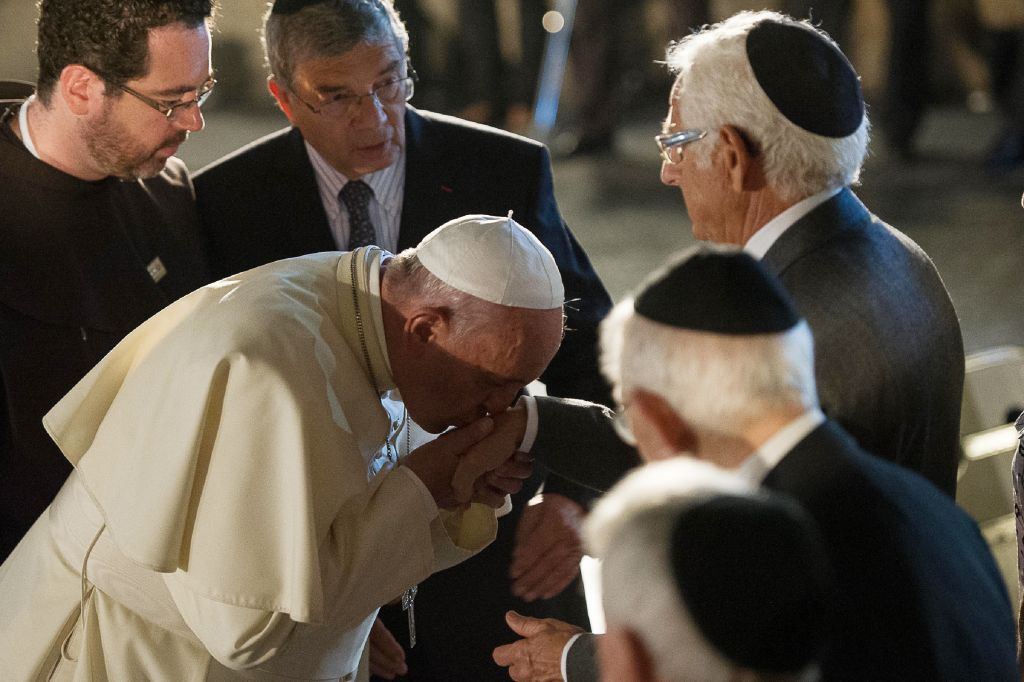Editor’s note: In addition to the series ‘All Christians are cucks’, recently excerpted for this site, the blogger Axe of Perun wrote a couple of other articles containing the following quotable quotes:
 Well, it is time to write a little something about Christians again. For those of you who haven’t yet, I advise you to check out the All Christians are Cucks series of articles. Once you digest the information there you should not be able, that is to say, you shouldn’t have the willpower, to call yourself a Christian Nationalist anymore…
Well, it is time to write a little something about Christians again. For those of you who haven’t yet, I advise you to check out the All Christians are Cucks series of articles. Once you digest the information there you should not be able, that is to say, you shouldn’t have the willpower, to call yourself a Christian Nationalist anymore…
Anyways, let us get several points here straight:
Jesus was a Jew. He was a Jew the same way that Paul, the Jew who brought you Christianity, was a Jew. Both were circumcised on their 8th day according to Jewish Law. Both were Hebrews, both knew how to read the Old Testament in Hebrew. Both were Israelites, both were Jews. It can’t get any more obvious than that. Jesus and the story about him claims that he is the Jewish Messiah, which is—who would have guessed it—a Jewish concept and finds its basis in the Old Testament. Jesus reads from the Old Testament. Jesus quotes about Yahweh, the Old Testament God.
Jesus observed all the Jewish ceremonies and holidays which celebrate the murder of non-Jews and are anti-Nature by their definition. Jesus praised Moses, the Jew. Jesus was a god damn Jewish Rabbi and the Book even calls him that.
For all you people out there who still refuse to accept this simple Truth—you have fattened just the way the Jews love you: You are the perfect sheep, in perfect form, with the perfect amount of fat and foolishness that another Bolshevik takeover seems to be imminent. Only a Nation of fools can be taken over by a small organized gang of criminals. And Christianity, when applied for long enough, turns that Nation into fools. If you don’t believe me, look around you and tell me if there is any real sanity to be found anywhere…
The biggest struggle of this century is not only the fight against the Jewish Race and their Biological weapons of mass destruction. It is the fight against the personal Jew which all of you Christ idiots have [red emphasis added]: the same Jew which all of the Liberals, Communists, Leftists, Marxists, etc., have. As long as this ridiculous mindset of Christianity exists among us we will never wake up, we will never be free and nothing will ever change.
____________
Read the articles: here and here.
Tag: Christian question (CQ)
Judaism's bastard sons
Heisman's suicide note, 4
Editor’s note: To better understand Mitchell Heisman✡ yesterday I printed the first five hundred pages of Suicide Note, and I have been reading it carefully. Although he shot himself after finishing his book, committing suicide does not mean he was aware of the Jewish Problem.
Suicide Note is a labyrinth full of traps for the unsuspecting reader. Even before I printed the first 500 pages, I told Spahn Ranch that getting into that book reminded me of Bacon’s criticism:
Francis Bacon said that philosophers love to spin webs. You can imagine the care one must have with this large web [Heisman’s book]. I feel like Frodo crossing Shelob’s tunnel with no more help than the Phial of Galadriel!
But this light is enough for me to orient myself in such a tunnel. In fact, in about fifteen minutes you will see, as my first entry about this new Otto Weininger, my excerpts from his extremely long-winded book. [comment link: here]
More than long-winded, Heisman reminds me of ‘Sartre’s verbosity diarrhea’: what an American visitor observed when visiting Sartre in Paris. Just compare this with the laconic way in which the Spartan spake (see the series on Sparta that these days publishes The Occidental Observer, for example: here).
Although I’m not going to read all of Heisman’s Suicide Note, in the comments section I also told Joseph Walsh the following:
If I understand the kike correctly, he’s saying that through Xtianity the Jewish memes have won the battle over Aryan genes; and that the creation of ‘God’ thru A.I. will even take that victory further, obliterating race altogether and even the human species. [comment link: here]
The triumph of the Aryan would be the triumph of white genes over Jewish memes. Recall in Evropa Soberana’s essay that, when the Jews realised that they could not defeat the Romans through conventional wars—genes—they resorted to the subterfuge of confusing them by means of an ethnosuicidal theology—memes. Heisman✡ is good to see this theology. He wrote:
______ 卐 ______
 Jesus radicalized a form of altruism. But here one must be very careful about precisely what kind of altruism Jesus radicalized. At first glance, it would appear that Jesus radicalized “love your neighbor”. Jesus did praise loving your neighbor, but “neighbor” can be ambiguous; somewhere between family and enemy. Insofar as “loving your neighbor”, in practical terms, amounts to loving your kin or your tribe (as opposed to enemies of your kin or tribe), radicalizing the love of kin or tribe would amount to advocating radical Jewish nationalism. Was this Jesus’s defining innovation, a morality of exclusive Jewish nationalism?
Jesus radicalized a form of altruism. But here one must be very careful about precisely what kind of altruism Jesus radicalized. At first glance, it would appear that Jesus radicalized “love your neighbor”. Jesus did praise loving your neighbor, but “neighbor” can be ambiguous; somewhere between family and enemy. Insofar as “loving your neighbor”, in practical terms, amounts to loving your kin or your tribe (as opposed to enemies of your kin or tribe), radicalizing the love of kin or tribe would amount to advocating radical Jewish nationalism. Was this Jesus’s defining innovation, a morality of exclusive Jewish nationalism?
You have heard that it was said, ‘You shall love your neighbor and hate your enemy.’ But I say to you, Love your enemies and pray for those who persecute you. (Matt. 5:43- 44)
Jesus’s reversal implied not only loving your enemies, but hating your neighbor—insofar, that is, as “neighbor” is connected with family in opposition to enemy. Jesus did not radicalize the corrective of the Jewish kinship paradox; Jesus radicalized the Jewish kinship paradox itself. This is one reason why Jesus’s innovations contradicted Jewish law at its traditional root. Instead of preaching “love thy neighbor” as a correction of “causeless hatred”, Jesus radicalized causeless hatred itself: Brother will betray brother to death, and a father his child; children will rebel against their parents and have them put to death. All men will hate you because of me, but he who stands firm to the end will be saved. When you are persecuted in one place, flee to another. (Matt. 10:21-23)
In place of the Old Testament commandment, “You shall not hate your brother in your heart”, Jesus preached, in effect, you shall hate your brother in your heart. This necessarily broke Jewish law. And this is why the kind of “love” Jesus advocated worked against Jewish “nationalism” and towards human internationalism. This extreme compelled the genesis of Christianity out of Judaim. Unqualified radical altruism leads to the negation of family values…
The core innovation at the heart of the Five Books of Moses is the Exodus paradigm; the inversion of the Egyptian pyramid-hierarchy; the first revolution. From Judaism to Christianity to the neo-Judaism of liberal democracy to neo-Christianity of Marxism, all of these revolutions share in common the fire started by Moses: the decisive triumph of nurture over sociobiological nature. Like waves that ripple from a singular stone plunged in water, all share reverberations of the first revolution. Like a miracle, the ripples are gathering back to their singularitarian source, humanity’s last revolution. [pages 126-128]
______ 卐 ______
Editor’s note:
‘And this is why the kind of “love” Jesus advocated worked against Jewish “nationalism” and towards human internationalism’ wrote Heisman✡ above. This is one of the dozens of traps I have found in Heisman’s book. What this guy astutely omits is that Jesus’ message is not really directed at the already ethnocentric Jews but at Romans.
At this point I differ radically from both commenter Arch Stanton and Heisman✡. The trick of the Jewish psyop is to make us believe that a wise individual said such and such, that eventually the evangelists recorded and now good Christians try to use as a new golden rule.
There is no historical evidence of this, as Joseph Hoffmann saw in the primal essay of this site to understand the so-called historical Jesus. What can be verified with certainty is that the authors of the New Testament were either Jews or Judaised gentiles. That is what concerns us.
The trap of Heisman✡ and of every Christian or neo-Christian is that they continue to sell us the idea of a historical Jesus who fought for such and such ideal, when ultimately the only thing that matters is the so-called New Testament itself: its message to the Romans; who wrote it, and the motivation of the authors.
When one reads the passages quoted above by Heisman✡ the motivation is obvious.
____________
Liked it? Take a second to support this site.
Today, as I finished reproducing my extracts from the first volume of Kriminalgeschichte, I would like to clarify something.
There was a time when I wanted to add to my excerpts the hundreds of footnotes that appear in Karlheinz Deschner’s book but I changed my mind: mere excerpts do not require the notes, especially in a blog. However, I must point out that there are bibliographical references in a book that the English speaker can read in his native language.
I am referring to Catherine Nixey’s The Darkening Age: The Christian Destruction of the Classical World: an elegant book published last year in Britain and available this year, in addition, by an American publisher.
Deschner was an obsessive scholar who worked to the nitty-gritty, nose-to-the-grindstone level throughout his life. Although The Darkening Age is not as monumental as Kriminalgeschichte des Christentums, I will reproduce Nixey’s preface and the third part of her Introduction. It is vital that English speakers know that we are not inventing a black history of Christianity. Some of the main references that support what we have been saying with the translations of Deschner and Evropa Soberana, also appear in Nixey’s book.
What is more, if you search you will find that even The Reader’s Digest which publishes copiously illustrated books for the simple, and very Christian, American families acknowledges the facts. For example, the image below shows a crowd of Christians who, encouraged by Pope Theophilus of Alexandria, destroyed the temple of Serapis in 391.

I scanned that image from pages 242-243 of the translation from English into Spanish of After Jesus (The Reader’s Digest Association, Inc., 1992). What we see in the illustration represents the first dark hour of the West: the era that saw the destruction of ancient knowledge in the Library of Alexandria. Now we are living the second dark hour, when the enemy attacks directly your DNA so that the West cannot recover again, not even after a dark age as it did in the Renaissance.
That’s why I call ‘darkest hour’ to our times.
About the first dark hour, of the authors I have quoted and will continue to quote, Soberana, Deschner and Nixey are gentiles. But yesterday almost midnight a commenter called my attention to Suicide Note, a book of almost two thousand pages of Mitchell Heisman (1975-2010). I began to leaf through the Suicide Note chapter on how the Christians installed Semitic malware in the psyche of the Romans to move them to commit ethnic suicide.
I was fascinated and continued reading until almost two in the morning today. However, when I wanted to inquire about the author via Google, I discovered that Heisman was a Jew who committed suicide upon finishing the book!
Of the German Deschner, the English Nixey and the Spaniard Soberana, only the latter awoke about the Jewish question. It is really curious that, although neither Deschner nor Nixey took the red pill, an American Jew did take it.
The PDF of Suicide Note is available online for anyone who wants to read the whole thing. Tomorrow I’ll start reproducing those passages that elucidate what we have been saying about the Christian problem. Of course: I have to place the star of David after the author’s name. It is very rare for a Jew to say anything about the psyop that his tribe applied to the Aryan since the origins of Christianity. One of them is Heisman✡.
Trouble is that most white nationalists still don’t want to see what even a kike saw just before blowing his brains…
Pierce’s stance on Christianity

Editor’s note: Will Williams responds to an article published on Counter-Currents:
1st comment:
Greg Johnson says: I was unaware the religion was one of the issues of contention in the fracturing of the National Alliance after Pierce’s death.
Will Williams replies: Greg, reading what Dr. Pierce, Founder of Cosmotheism, wrote to his members in 1982, shows that he had no intention of compromising with Xians. He wanted to disentangle our race from the clutches of this Abrahamic slave creed and strike out on a higher path.
Most Alliance members realized there was a spiritual aspect to the National Alliance, and that we took a decidedly dim view of Xianity. There were never any prayers at our meetings, or any other Xian trappings like that. To some of us the Alliance was our Church, grounded in reality and Nature, and race-centered.
Imagine how many Pierce loyalists who had dedicated their lives and fortunes to Alliance-building must have felt when Gliebe and Walker & Co. removed the entire following section from the second printing of the National Alliance Membership Handbook.
All else aside, that one ill-advised blunder could arguably be what did the Alliance in once and for all. Gliebe had gone big tent—for expediency and short term gains—and drove the Alliance into the ground from then on.
2.d. OPPOSED IDEOLOGIES (written in 1992)
2d.vii. Christianity
The National Alliance is not a religious organization, in the ordinary sense of the term. It does, however, have to concern itself with religious matters, because religions influence the behavior of people, society, and governments. The doctrines of various religious groups—Christians, Muslims, Jews, Buddhists, et al.—deal with the temporal as well as spiritual matters and therefore often conflict with National Alliance doctrine.
Christian doctrines are of much greater concern to the National Alliance than the doctrines of other large religious groups, because Christianity is the most influential religion in the United States, Europe, and the rest of the White world. Most members of the National Alliance come from families which are, or a generation ago were, at least nominally Christian, and very few come from families which practice or practiced, Islam, Buddhism, or other religions. Furthermore, the history of our race for the last thousand years has been inextricably bound up with Christianity. The National Alliance really cannot avoid taking positions regarding Christian beliefs and practices, despite the complications this causes our work.
The immediate and inevitable fact which forces us to come to grips with Christianity is that the mainstream Christian churches are all, without exception, preaching a doctrine of White racial extinction. They preach racial egalitarianism and racial mixing. They preach non-resistance to the takeover of our society by non-Whites. It was the Christian churches, more than any other institution, which paralyzed the will of White South Africans to survive. It is the Christian establishment in the United States which is preeminent in sapping the will of White Americans to resist being submerged in the non-White tide sweeping across the land. Most Christian authorities collaborate openly with the Jews, despite the contempt and abuse they receive in return, and the rest at least follow Jewish policies on the all-important matter of race. The occasional anomaly—a Catholic bishop in Poland speaking out angrily against Jewish arrogance, a few Protestant groups in the United States expressing sympathy for oppressed Palestinians—does not invalidate the rule.
We are obliged, therefore, to oppose the Christians churches and to speak out against their doctrines. But we do not, as some groups have done, accuse the Christian leaders of being false Christians. We do not say, “We are the real Christians, because we stand for the values which the mainstream churches stood for a century ago, before they were subverted.” We do not reach for our Bibles and point to verses which seem to be in accord with the policies of the National Alliance and contrary to the present policies of the Christian churches. A diligent Bible scholar can find in the Judeo-Christian scriptures support for—or ammunition against—virtually any policy whatsoever.
Beyond the immediate conflict between us and the Christian churches on racial matters there is a long-standing and quite fundamental ideological problem with Christianity. It is not an Aryan religion; like Judaism and Islam it is Semitic in origin, and all its centuries of partial adaptation to Aryan ways have not changed its basic flavor. It was carried by a Jew, Saul of Tarsus (later known as Paul), from the Levant to the Greco-Roman world. Its doctrines that the meek shall inherit the earth and that the last shall be the first found fertile soil among the populous slave class in Rome. Centuries later, as Rome was succumbing to an internal rot in which Christianity played no small part, legions of Roman conscripts imposed the imported religion on the Celtic and Germanic tribes to the north.
Eventually Christianity became a unifying factor for Europe, and in the name of Jesus Europeans resisted the onslaught of Islamic Moors and Turks and expelled the “Christ-killing” Jews from one country after another. But the religion retained its alien mind-set, no matter how much some aspects of it were Europeanized. Its otherworldliness is fundamentally out of tune with the Aryan quest for knowledge and for progress; its universalism conflicts directly with Aryan striving for beauty and strength; its delineation of the roles of man and god offends the Aryan sense of honor and self-sufficiency.
Finally Christianity, like the other Semitic religions, is irredeemably primitive. Its deity is thoroughly anthropomorphic, and its “miracles”—raising the dead, walking on water, curing the lame and the blind with a word and a touch—are the crassest superstition.
We may have fond memories of the time before the Second World War when pretty, little girls in white dresses attended all-White Sunday schools, and Christianity seemed a bulwark of family values and a foe to degeneracy and indiscipline. We may cherish the tales of medieval valor, when Christian knights fought for god and king—if we can overlook the Christian church’s bloodthirsty intolerance, which stifled science and philosophy for centuries and sent tens of thousands of Europeans to the stake for heresy.
We may even find Christian ethics congenial, if we follow the standard Christian practice of interpreting many of its precepts—such as the one about turning the other cheek—in such a way that they do not interfere with our task. But we should remember that nothing essential in Christian ethics is specifically Christian. Any successful society must have rules of social conduct. Lying and stealing were shunned in every Aryan society long before Christianity appeared. Our pagan ancestors did not need Christian missionaries to tell them how to behave or to explain honor and decency to them—quite the contrary!
Historians may argue the pros and cons of Christianity’s role in our race’s past: whether or not the unity it provided during a period of European consolidation outweighed the loss of good genes it caused in the Crusades and the bloody religious wars of the Middle Ages (and through the Church’s policy of priestly celibacy); whether the splendid Gothic cathedrals which rose in Europe during the four centuries and the magnificent religious music of the 18th century were essentially Christian or essentially Aryan in inspiration; whether Christianity’s stand against the evils of self-indulgence—against gluttony and drunkenness and greed—was worth its shackling of the human mind in superstition or not. One thing already is clear, however: Christianity is not a religion that we can wish on future generations of our race.
We need ethics; we need values and standards; we need a world view. And if one wants to call all of these things together a religion, then we need a religion. One might choose instead, however, to call them a philosophy of life. Whatever we call it, it must come from our own race soul; it must be an expression of the innate Aryan nature. And it must be conducive to our mission of racial progress. Christianity, as the word is commonly understood, meets neither of these criteria.
The fact is that, completely aside from the racial question, no person who wholeheartedly believes Christian doctrine can share our values and goals, because Christian doctrine holds that this world is of little importance, being only a proving ground for the spiritual world which one enters after death. Christian doctrine also holds that the condition of this world is not man’s responsibility, because an omnipotent and omniscient deity alone has that responsibility.
Although some Christians do believe Christian doctrine wholeheartedly, however, most do not. Most instinctively feel what we explicitly believe, even if they have repressed those feelings in an effort to be “good” Christians. Because of this many nominal Christians, even those affiliated with mainstream churches, can, under the right circumstances, be persuaded to work for the interests of their race. Other nominal Christians—especially those who stand apart from any of the mainstream churches—have interpreted Christian doctrine in such an idiosyncratic way that the contradictions between their beliefs and ours have been minimized.
For these reasons we want to avoid conflict with Christians to the extent that we can. We don’t want to give unnecessary offense, even when we speak out against the doctrines of these churches. We don’t want to ridicule their beliefs, which in some cases are sincerely held. Some of these people later will reject Christianity’s racial doctrines. Some will reject Christianity altogether. We want to help them in their quest for truth when we can, and we want to keep the door open to them.
Members who want to study the subject of Christianity and its relationship to our task in depth should read Which Way Western Man? by our late member William Simpson. The book’s initial chapters describe the spiritual odyssey of a man of exceptional spiritual sensitivity, who was far more intensely a Christian than nearly any Christian living today and who eventually understood the racially destructive nature of Christianity and rejected it.
A more concise study of the difference between the Christian world view and ours is given in Wulf Sörensen’s The Voice of Our Ancestors, which was reprinted in National Vanguard No.107.
2nd comment:
Back in the late 1980s, before we had the Internet, I was editor of the Racial Loyalty tabloid, the monthly newspaper for Ben Klassen’s Church or the Creator (COTC). I recently found RL #52, July ’89, and saw in it a letter to the editor I published from a National Alliance member which included the following quote from Dr. Pierce from his February ’89 National Alliance Members Bulletin:
The greatest obstacle to the survival of our race is Christianity. Even with all their malice and cunning, the Jews would pose no real threat to the race were it not for their Christian collaborators. In the U.S. just as in South Africa, the Jews may be pulling a lot of strings behind the scenes, but the troops in the war against the White Race are mainly White Christians filled with religious guilt and obsessed with the need to expiate that guilt by sacrificing their own race on the altar of ‘equality’…
Let us never forget… that Christianity itself is an alien, hostile, racially destructive creed of Jewish origin, and in the future most of those who have fallen under its spell will continue to be our enemies and the enemies of our race.
A couple of years after Dr. Pierce wrote those words to his Alliance members in the internal NA Members Bulletin, and I republished them for Creators in Racial Loyalty, he invited me to come work with him in WV as the Alliance’s first Membership Coordinator.
The COTC self-destructed around 1992 and many Creators, knowing Dr. Pierce’s world view, naturally gravitated to the National Alliance (especially after he purchased the COTC headquarters property from Mr. Klassen), so it doesn’t take a great leap of imagination for some of the more activist-minded former Alliance members to want to help rebuild a viable Creativity Alliance. Erich Gliebe’s “new & improved” National Alliance is unrecognizable to them compared to the Alliance they had been a part of under Dr. Pierce.
3rd comment:
That essay by Dr. Pierce was his editorial for the monthly internal National Alliance Members Bulletin 28 years ago. Dr. Pierce’s intellectual honesty should have been apparent to anyone reading this statement:
Any Alliance member who is also a member of a church or other Christian organization which supports racial mixing or Zionism should decide now where he stands, and he should then resign either from his church or from the Alliance.
I sure remember how that sentence grabbed me on first reading. I must have distributed hundreds of copies of that editorial to others who I thought those words by Dr. Pierce’s would resonate.
It was an effective Alliance recruiting tool, until, that is, The Alliance went “big tent” after Dr. Pierce’s death, and the policy procribing Xianity as an opposed ideology to that of the Alliance was reversed. It was all downhill for the NA from then on. What had set it apart from the other big tent organizations was jettisoned.

My problem with the typical christian, though, is that I find it near impossible to know precisely when he’ll start hallucinating about yahweh or jesus suddenly appearing before him, commanding him to mend his ways by adopting random niglets or donating his savings to the nearest zionist megachurch.
The Cofnas debate
See Counter-Currents’ fair summary of the Nathan Cofnas debate with Kevin MacDonald. Why has this been such a boring debate to follow?
Very simple: The Jewish problem (JP) is best addressed starting with a recount of Greco-Roman history, as Evropa Soberana does in what I have been calling the masthead that guides The West’s Darkest Hour in the open sea. MacDonald’s The Culture of Critique lacks such a broad scope. It navigates in a closed channel, as his whole trilogy ignores the Christian problem (CP) that in essence is an offshoot of the JP.

Researching the JP historically, since the beginning as I do also in my comments of the Kriminalgeschichte series, and how it metamorphosed into the CP, is far more entertaining: a sort of unified field theory that only the priests of the 14 words are starting to glimpse.
To provide a single example. Compared to the kikes that MacDonald analyses in The Culture of Critique, a single Christian such as Augustine has been more influential in the deconstruction of the West. No doubt I’ll continue to translate Deschner’s chapter about this Father of the Church.
God – postscript
It has been two months since I reproduced the entry ‘God’ in which Jung analyses the god of Judeo-Christians. It is so important that I will include it in the 2018 edition of Day of Wrath (the present edition of the book is from December 31, 2017).
I would like to say something about what is being discussed in one of my recent entries about the Shroud of Turin, especially what the Catholic Gaedhal says.
It is good to follow Jack’s advice in that thread of discussion: get acquainted with what I have translated for this site authored by Manu Rodríguez. I’m not sure why: but freethinkers who have roots in Spain are somewhat more aware of the calamity that Christianity represented than the English-speaking freethinkers. I have translated a lot of the other Spaniard, Evropa Soberana; but I should translate a little more of Rodríguez; and it is amazing how three Spanish speakers if I count among them, have maintained very similar views about Christianity.
The crucial thing is that the very idea of ‘God’ is toxic and deadly for the Aryan. Nietzsche saw it very well in the final words of his best book:
Sixth article.—The ‘holy’ history should be called by the name it deserves, the cursed history; the words ‘God’, ‘saviour’, ‘redeemer’, ‘saint’ should be used as terms of abuse, to signify criminals.
Seventh article.—The rest follows from this.
The point is that, as Constantine and the other Christian emperors dedicated themselves to erase all traces of the Aryan gods, and in their place implanted in the white psyche the god of the Jews with incandescent neon letters, every time someone revolts against the implant a ‘bug’ arises, so to speak, in those who unconsciously continue to defend Western Christian Civilisation instead of salivating for its collapse.
It was Nietzsche who saw ‘God as a spider’—his words—which is what Yahweh really is for the Aryan mosquitoes that fall into his net. If we are to win the chess game to the Jews, the first thing we must do is checkmate their god. It’s amazing that white nationalists fail to see something so obvious. The Covingtonistas that on Twitter are puzzled why the Aryan does not defend himself should begin to think that the cause is that he has a major bug in his mind, the god of the Jews.
If one visits the blogs of a typical white nationalist it is apparent that none promotes an internal Jihad. They want to save the race by means of slight changes, such as deleting and adding programs instead of the radical change of the Operating System itself (changing from PC to Linux in their spirit, so to speak). It is precisely for this reason that, although many believe that they have left Christianity and the Jewish god behind, they continue to say neo-Christian things, just as I mention in my last quotation from Linder, instead of hating the enemy more ferociously than loving one’s life.
If only hatred for the enemy can save the Aryans, God is a Spider: but a spider for whites only (ethnocentrism for me—Old Testament—, universalism for thee—New Testament). What Gaedhal proposes is, basically, to continue to honour the Spider and put on it a cosmetic Aryan garment without killing the monster behind it.
That, as have seen the two Spaniards mentioned above, is impossible.
 I have complained that what is killing whites is what I call ‘partial apostasy’ when what we need is a ‘total apostasy’. The only way to transvalue all values, as Nietzsche says, is to start weaponizing the sacred words of Judeo-Christianity as insults to the unredeemed Aryan, which includes quite a few white nationalists. Wanting to save the Aryan race from extinction without purging the alien—the very idea of God—is similar to Ridley Scott’s Alien in that they didn’t remove the arachnid-like parasite stuck in Kane’s face.
I have complained that what is killing whites is what I call ‘partial apostasy’ when what we need is a ‘total apostasy’. The only way to transvalue all values, as Nietzsche says, is to start weaponizing the sacred words of Judeo-Christianity as insults to the unredeemed Aryan, which includes quite a few white nationalists. Wanting to save the Aryan race from extinction without purging the alien—the very idea of God—is similar to Ridley Scott’s Alien in that they didn’t remove the arachnid-like parasite stuck in Kane’s face.
‘A love letter from God’
From personal experience I know that, when one is immersed in the dogma of a pseudoscience, the believer swears that it is real science.
A typical believer in a classical pseudoscience, such as the study of UFOs or parapsychology, ignores that there is a litmus test to distinguish between false and true science: the principle of the falsifiability of a hypothesis that Karl Popper devised in The Logic of Scientific Discovery. In short, for a hypothesis to be scientific it has to be refutable. Pseudoscientists follow the opposite methodology: they present their central hypotheses in such a way that they cannot be refuted. A typical case of pseudoscience from the Popperian point of view is sindonology, the study of the Shroud of Turin (Sindonology, from the Greek sindon: the word used in the gospel of Mark to describe the type of the burial cloth of Jesus).
Geoffroi de Charny, a French knight who died in 1356 at the Battle of Poitiers, was the first recorded owner of what later became known as ‘the Turin Shroud’. When in the late 1980s I was immersed in sindonology, I not only read a huge amount of literature on the subject where I learnt about the de Charny story, but contacted the ‘experts’ by mail, some personally. The late Dr. Enrique Rivero-Borrell, the foremost ‘expert’ on the shroud in Mexico, told me something I should mention.
I met him at a meeting of a group of Catholic sindonologists who believe that the image of the shroud is nothing more and nothing less than a late ‘love letter’ that God left behind in the 1st century as proof of the Resurrection for our scientific age!
The meeting with Rivero-Borrell, presided by Faustino Cervantes Ibarrola, a pleasant priest, was held in the aftermath of the carbon-14-dating tests results performed on the shroud in 1988. Rivero-Borrell, president of a sindonological organisation, was very confused. The tests, endorsed by the cardinal of Turin himself, revealed that the fabric dated from 1260 to 1380 CE. Keep in mind that the shroud is exactly about the size of an altar cloth; in no way resembles the several burial cloths used by Jewry. Since the shroud made its first appearance in a town in France, precisely in the times of de Charny, it could not be more significant that science corroborated that the cloth was manufactured in the 13th or 14th centuries.
However, I continued my investigation of the shroud because, at that time, I believed that the image remained mysterious. That was how I learned, a couple of years later that Rivero-Borrell left behind all his previous confusion of 1988. Very enthusiastically, he told me that the latest research had revealed that the carbon 14 tests had come out medieval because a fungus had covered the cloth, changing the molecular chemistry and the results turned out aberrant!
In other parts of the world, other sindonologists said that Jesus’ energy in the resurrection, which they call flash photolysis—the very moment when Jesus was resurrected!—not only left the miraculous imprint on the sheet, but changed its molecular chemistry. That’s why the results had come out medieval instead of the 1st century (a rather clumsy deity was this one who intended to leave behind ‘a love letter’ for us)!
The least absurd excuse among the sindonologists that I heard is that the piece of cloth to which they applied the carbon 14 tests was attached to the shroud; not a part of the original fabric.
All these excuses have something in common: they present us their central hypothesis—that the image of the Turin shroud is the result of a miraculous imprint at the very moment of Jesus’ resurrection—as an irrefutable hypothesis. And it is precisely the irrefutability of the central hypothesis of a field of study the most common feature in pseudosciences.
For example, those who study UFOs say that there is a conspiracy that involves all governments since 1947: government officials who have hidden evidence from the American people of extraterrestrial visitors. This is an irrefutable hypothesis insofar as, when a sceptic requests evidence that an alien ship exists in a top-secret hangar, the believer responds that everything is jealously guarded by sinister instances of the federal government. A massive conspiracy involving all presidencies from Truman to Trump, including the CIA and the FBI, and which continues today, cannot be refuted. Every time the sceptic complains that a massive conspiracy stresses the claim to the breaking point, the believer responds that the sceptic himself is a paid CIA agent! I’m not kidding: some ufologists used to say that about Philip J. Klass, the CSICOP specialist in UFOs, whom I met at a conference.
The same happens in the field of parapsychology. Parapsychologists say that extra-sensory perception (ESP) and psychokinesis (PK) exist, but that they are such erratic phenomena that it is very difficult to demonstrate them methodically and repeatedly in the laboratory. That is, there is no way to adequately submit the paranormal hypothesis to the protocol of refutability devised by Popper. That does not mean that ESP and PK do not exist (personally I doubt they exist). It means that the parapsychologists, who claim that they have reliable, empirical evidence of the existence of the paranormal, violate the principle of falsifiability by calling their field of study strictly ‘scientific’.
Such a pseudoscientific methodology is what the sindonologists also follow. Take for example the least insane of the above-mentioned excuses about why, according to believers, the carbon 14 tests did not come out of the century they expected: that researchers could have cut a cloth attached to the shroud, not the fabric where the image is.
If the proponents of the authenticity of the shroud were true scientists they would not be lucubrating such things. They would simply ask the Cardinal of Turin to allow another carbon 14 test on the cloth, this time from the area they consider appropriate. Meanwhile, the wise thing would be to suspend judgement until the cardinal approves another series of tests. Instead, what sindonologists do—who after the radiometric 1988 tests continue to claim that image is proof of the Resurrection—is a battery of secondary tests. Most of such tests are unrelated to the dating of the cloth; tests that purportedly show that the image remains mysterious.
That the image is not so mysterious can be seen in the research that Joe Nickell, a sceptic I met in 1994, has made of the shroud. But there is more to Nickell’s research: as we will see in the following entries on the subject.
 Before finishing this post I would like to say something else. A white nationalist visiting this site might think that my interest in unmasking the gospels and the shroud buffs is a secondary issue. It is not. A few minutes ago of my writing this paragraph the bell of my house rang. Some Jehovah’s Witnesses gave me propaganda. I wrinkled it in anger and was about to throw it away when I saw the image of these blacks. Then it occurred to me to use it because in the background these neo-Christians put whites in a bucolic world where the races converge.
Before finishing this post I would like to say something else. A white nationalist visiting this site might think that my interest in unmasking the gospels and the shroud buffs is a secondary issue. It is not. A few minutes ago of my writing this paragraph the bell of my house rang. Some Jehovah’s Witnesses gave me propaganda. I wrinkled it in anger and was about to throw it away when I saw the image of these blacks. Then it occurred to me to use it because in the background these neo-Christians put whites in a bucolic world where the races converge.
Christian ethics, so well captured in the propaganda I was given today, is a bigger factor than Jewish subversion, as without such ethics there would be no Jews (or blacks) empowered in the West. Aryans embracing a moral grammar based on the belief of a resurrected Jew is unhealthy, to say the least.
Bishop of Rome

I told you. Christians, including white nationalists, ‘can think of themselves as anti-Jewish without understanding that they are the ultimate conclusion of Judaism’, as the author of The Antichrist put it.
American white nationalism is deluded. Only Hitler and the anti-Christians whom he talked to in the after-dinner conversations saw the light.
